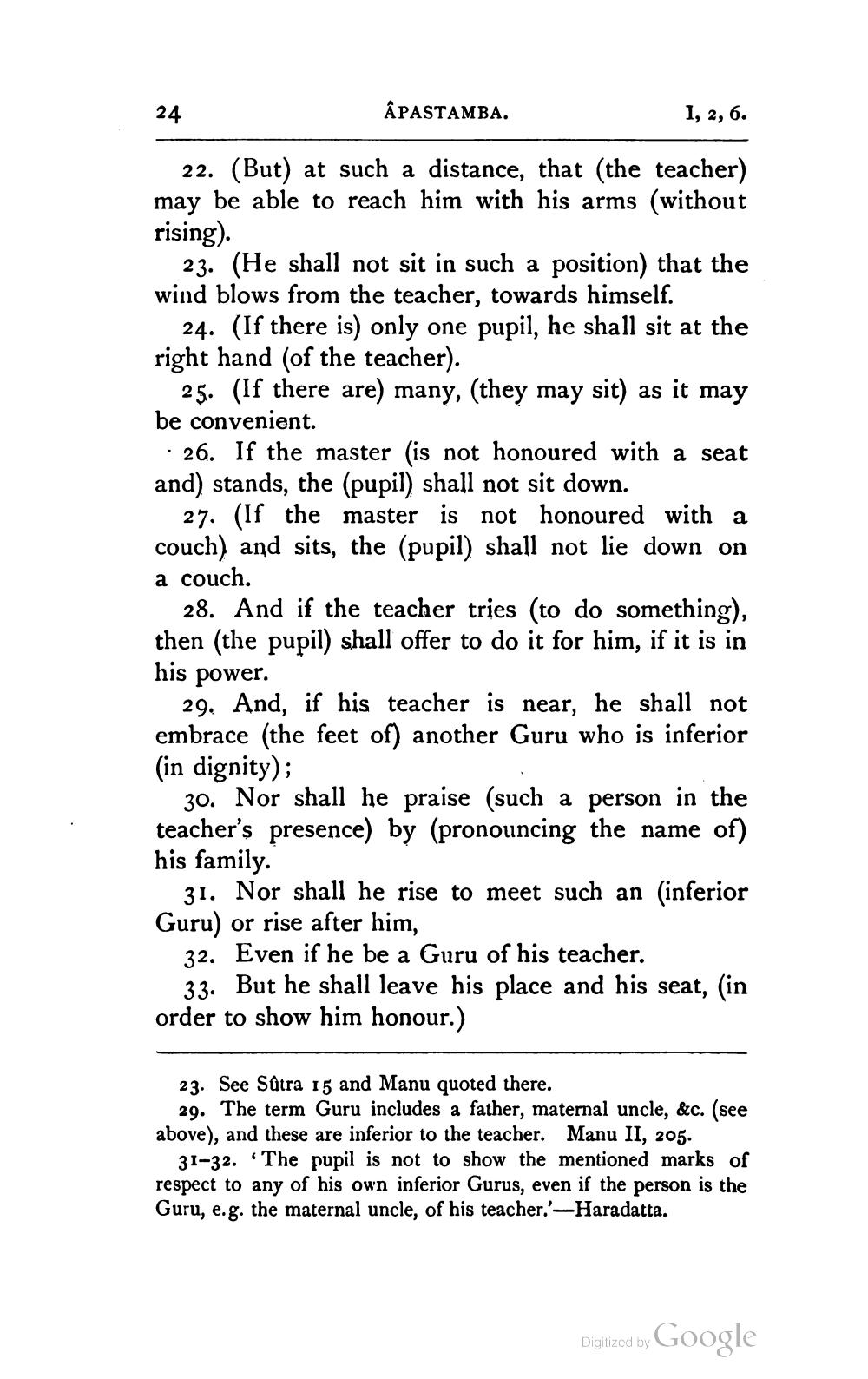________________
24
ÂPASTAMBA.
1, 2, 6.
22. (But) at such a distance, that the teacher) may be able to reach him with his arms (without rising).
23. (He shall not sit in such a position) that the wind blows from the teacher, towards himself.
24. (If there is) only one pupil, he shall sit at the right hand (of the teacher).
25. (If there are) many, (they may sit) as it may be convenient.
. 26. If the master (is not honoured with a seat and) stands, the (pupil) shall not sit down.
27. (If the master is not honoured with a couch) and sits, the (pupil) shall not lie down on a couch.
28. And if the teacher tries (to do something), then (the pupil) shall offer to do it for him, if it is in his power.
29. And, if his teacher is near, he shall not embrace (the feet of) another Guru who is inferior (in dignity);
30. Nor shall he praise (such a person in the teacher's presence) by (pronouncing the name of) his family.
31. Nor shall he rise to meet such an (inferior Guru) or rise after him,
32. Even if he be a Guru of his teacher.
33. But he shall leave his place and his seat, (in order to show him honour.)
23. See Sūtra 15 and Manu quoted there.
29. The term Guru includes a father, maternal uncle, &c. (see above), and these are inferior to the teacher. Manu II, 205.
31-32. The pupil is not to show the mentioned marks of respect to any of his own inferior Gurus, even if the person is the Guru, e.g. the maternal uncle, of his teacher.'-Haradatta.
Digjized by Google




